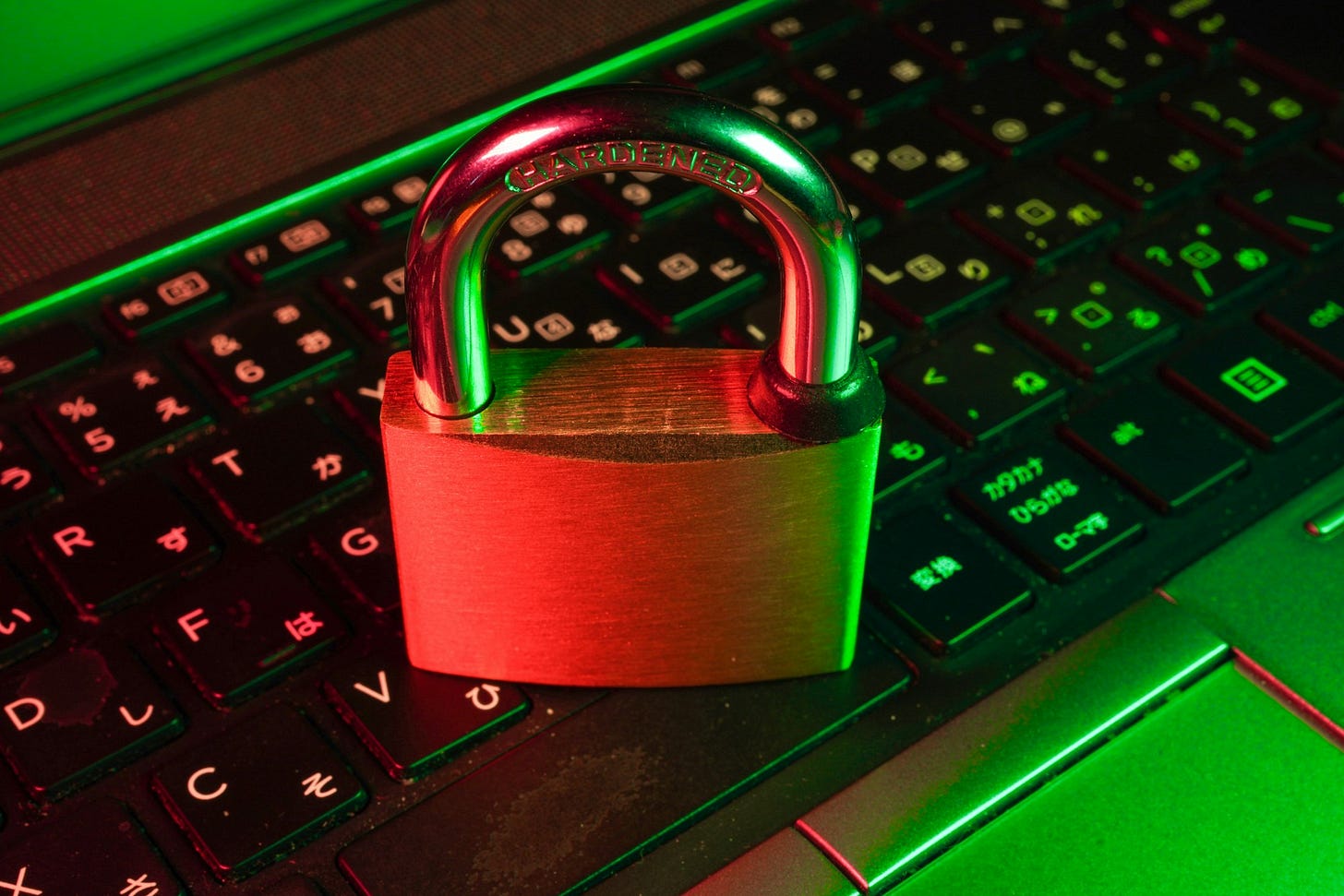My Essential Recommendations for Staying Secure and Private Online
The growing reliance on computers necessitates personal security measures to protect our data, identity, and financial assets from malicious actors. In this article, we'll explore the significance of personal security concerning computers.
Computers have become a fundamental aspect of our daily lives in this digital era. We use them for numerous purposes, like accessing the internet, storing personal information, communicating with family and friends, and conducting financial transactions. However, the growing reliance on computers necessitates personal security measures to protect our data, identity, and financial assets from malicious actors. In this article, we'll explore the significance of personal security concerning computers.
Personal security is primarily crucial to shield ourselves from cybercrime. Cybercriminals use tactics like phishing emails, malware, and hacking to access our personal information. Once they have access, they can steal our identities, financial information, and other sensitive data, causing devastating consequences, including economic loss, reputational damage, and other adverse effects.
Moreover, personal security is critical for protecting our devices from viruses and malicious software. Without adequate protection, our computers can be infected with malware, leading to data loss, system crashes, and other problems. By implementing appropriate security measures, such as installing antivirus software, updating software regularly, and avoiding suspicious downloads, we can significantly reduce the risk of malware infections.
VPN
Privacy and personal digital security go hand-in-hand. With growing concerns regarding government surveillance and privacy breaches, having a VPN (Virtual Private Network) to hide your internet traffic location and IP address is crucial. However, researching is vital since some VPN services may log your data. Some reputable VPN services are NORD, Proton, and Express VPN.
Email
Email is another critical area where securing your data since most email accounts store intimate details such as credit card emails, paycheck emails, personal correspondence, and business-related data. Gmail is an excellent option, but use a different version since Google tracks everything you do. Instead, pay for Google's enterprise version and buy a domain that adheres to specific enterprise business protocols. Proton Mail is also a good option with encryption keys; they promise not to access your data.
Gmail vs Proton
Gmail: Don't use the free version. Instead, pay for Google's enterprise version and buy a domain. Gmail is free, and Google tracks everything you do. At the same time, their enterprise version of Gmail doesn't, since Google goes to lengths to follow specific protocols enterprise businesses need. Google Gmail is the best email service out there, and the paid version is better because Google is not tracking you.
Proton Mail: This is another good option. They give you the key to your encryption and promise they cannot access your data. On top of that, they offer built-in encrypted email options. Proton.me is growing and provides more than just email. They are attempting to set themselves up as a privacy-focused version of Google. Though, they charge a lot for services that take a long time to upgrade to new features. They are small, but they are also growing. However, I prefer waiting to see them produce more mature tools before trying them.
Passwords
Passwords are a pain to remember, and using the same password for everything is a significant security risk. Password managers like 1Password can save your passwords securely; you only need to remember one password to access the manager. Two-factor authentication is also crucial for added security.
Lastly, creating a unique username for every login is crucial since using the same email and password makes it easier for hackers to track you down. A tool to create individual email addresses that automatically forward to your email can help.
1Password not only works with everything but also includes two-factor authentication already built-in.
What is Two-Factor Authentication? It's the second prompt you receive after logging in to a site, which I also recommend should you have it set up.
Some people allow their phone number to receive a text message with a unique code as their two-factor authentication method. I do not recommend this. It's better to use a password manager. It's safe and more secure this way.
Username
Okay, at this point in our digital history, most are aware of the importance of password management. However, another thing most people need to consider is usernames. Even if you use a unique password for all your logins, are you using the same email or username for each? If so, then you should stop immediately.
Hackers can better track you down when targeting victims if you use the same email and password. That is why you should create a unique username for everything you use, which requires a login. If you must use an email address, try using a tool to help you make an individual email address that automatically forwards to your email.
Personal security is vital for protecting our online privacy. With the increasing popularity of social media and other online platforms, it has become easier for others to access and share our personal information. Implementing personal security measures like limiting the amount of personal information transmitted online, using privacy settings to control who sees our data, and avoiding sharing personal information publicly can help prevent privacy breaches.




